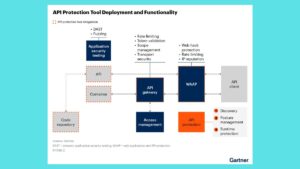How Private Cloud Enhances Data Security for Employers

In an era where data breaches and cyber threats are becoming increasingly common, organizations must prioritize the security of their sensitive information. The adoption of cloud computing has revolutionized how businesses store, manage, and access data. Among the various cloud models, private cloud solutions stand out for their enhanced security features tailored to meet the unique needs of organizations. In this blog, we will explore how the private cloud enhances data security for employers and why it may be the ideal choice for businesses seeking to safeguard their valuable information.
Understanding Private Cloud
A private cloud is a cloud computing environment exclusively dedicated to a single organization. Unlike public clouds, where resources are shared among multiple tenants, private clouds offer greater control, customization, and security. Organizations can deploy private clouds on-premises or through third-party service providers, enabling them to tailor the infrastructure to their specific security requirements.
1. Increased Control Over Data
One of the most significant advantages of a private cloud is the level of control it offers over data. Organizations can manage their own infrastructure, ensuring that data is stored and processed in compliance with internal policies and regulatory requirements. This control extends to data encryption, access controls, and security protocols, allowing employers to implement security measures that align with their unique risk profiles.
2. Enhanced Security Measures
Private clouds come equipped with advanced security features that are often more robust than those offered by public cloud solutions. These security measures may include:
- Firewalls and Intrusion Detection Systems (IDS): Private clouds typically incorporate sophisticated firewalls and IDS to monitor and protect against unauthorized access and malicious activity.
- Data Encryption: Organizations can implement encryption protocols to secure data at rest and in transit, ensuring that sensitive information is protected from unauthorized access.
- Multi-Factor Authentication (MFA): Private clouds can enforce MFA, adding an extra layer of security by requiring users to verify their identity through multiple methods before gaining access to sensitive data.
3. Regulatory Compliance
Many industries are subject to strict regulations regarding data protection and privacy. Private clouds provide organizations with the flexibility to tailor their infrastructure to meet these compliance requirements. Employers can implement specific security measures, data governance policies, and audit trails to demonstrate compliance with regulations such as GDPR, HIPAA, and PCI DSS.
4. Customized Security Policies
In a private cloud environment, employers have the ability to create and enforce customized security policies that align with their organizational goals and risk tolerance. This includes defining user access levels, data handling procedures, and incident response protocols. By tailoring security policies to their specific needs, organizations can effectively mitigate risks and respond quickly to potential threats.
5. Isolated Environment
The isolation provided by private clouds significantly reduces the risk of data breaches. Since the infrastructure is dedicated to a single organization, the chances of data exposure to other tenants are virtually eliminated. This isolation is particularly advantageous for businesses handling sensitive information, such as financial data, healthcare records, or intellectual property.
6. Regular Security Audits and Updates
Private cloud providers often conduct regular security audits and updates to ensure that their infrastructure remains secure against emerging threats. Organizations can collaborate with their private cloud providers to stay informed about security patches, vulnerability assessments, and best practices for maintaining a secure environment.
7. Improved Incident Response Capabilities
In the event of a security incident, having a private cloud can enhance an organization’s ability to respond effectively. Employers can implement incident response plans tailored to their specific infrastructure, ensuring that they can quickly contain and mitigate potential threats. This proactive approach minimizes downtime and reduces the impact of security breaches.
8. Data Backup and Disaster Recovery
Private clouds typically offer robust data backup and disaster recovery solutions, ensuring that critical data is protected and can be restored in the event of a failure or breach. Employers can implement automated backup processes and develop comprehensive disaster recovery plans to safeguard their information and maintain business continuity.
Conclusion
As cyber threats continue to evolve, organizations must prioritize data security to protect their sensitive information and maintain customer trust. Private cloud solutions offer a range of enhanced security features that provide employers with greater control, customization, and protection against potential risks.
By leveraging the benefits of a private cloud, businesses can create a secure environment tailored to their specific needs while ensuring compliance with regulatory requirements. With increased control over data, enhanced security measures, and improved incident response capabilities, private clouds are an ideal choice for organizations seeking to enhance their data security posture.
In today’s digital landscape, investing in a private cloud solution is not just a strategic decision; it is a critical step toward safeguarding valuable data and ensuring the long-term success of the organization.






